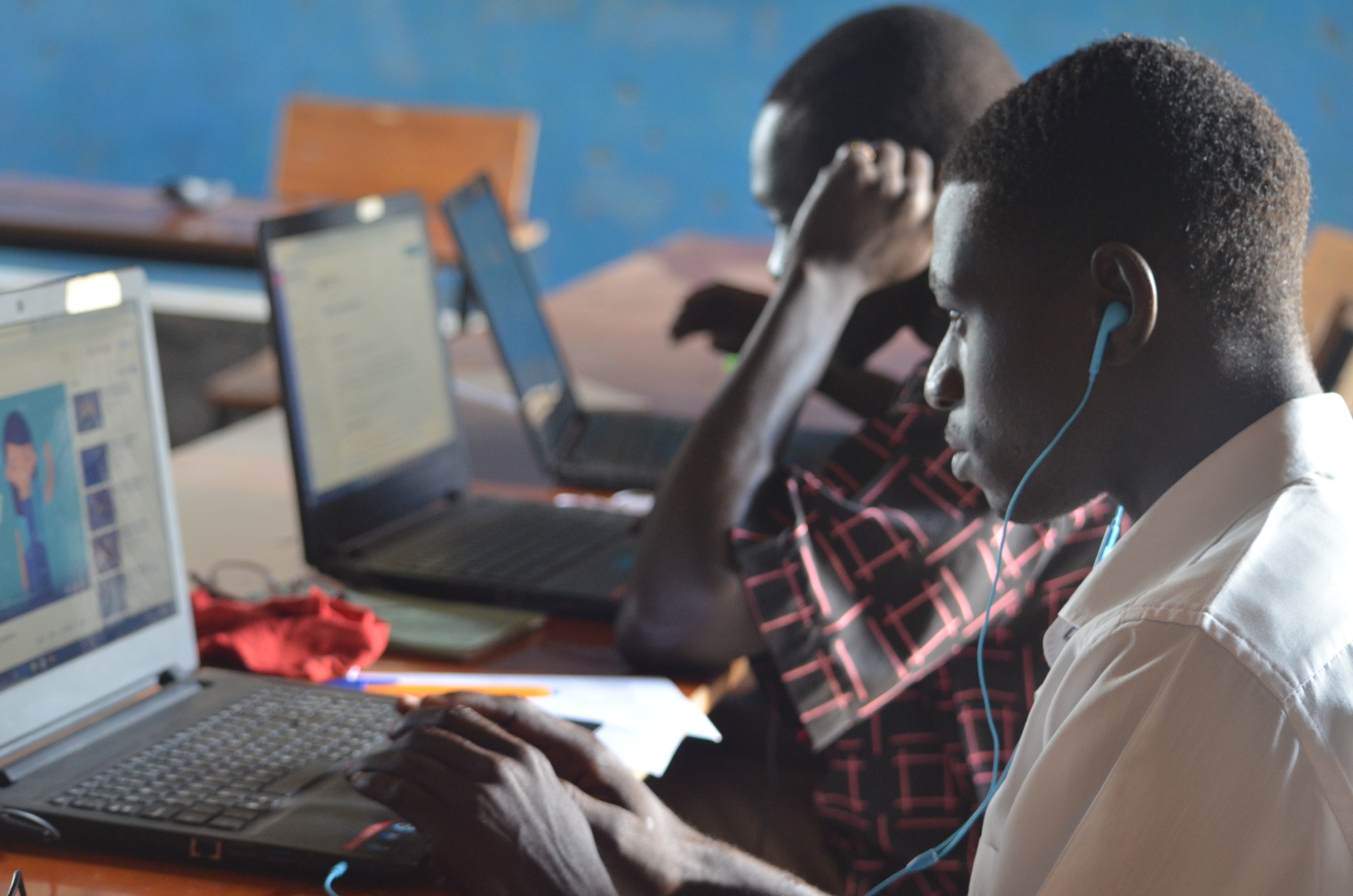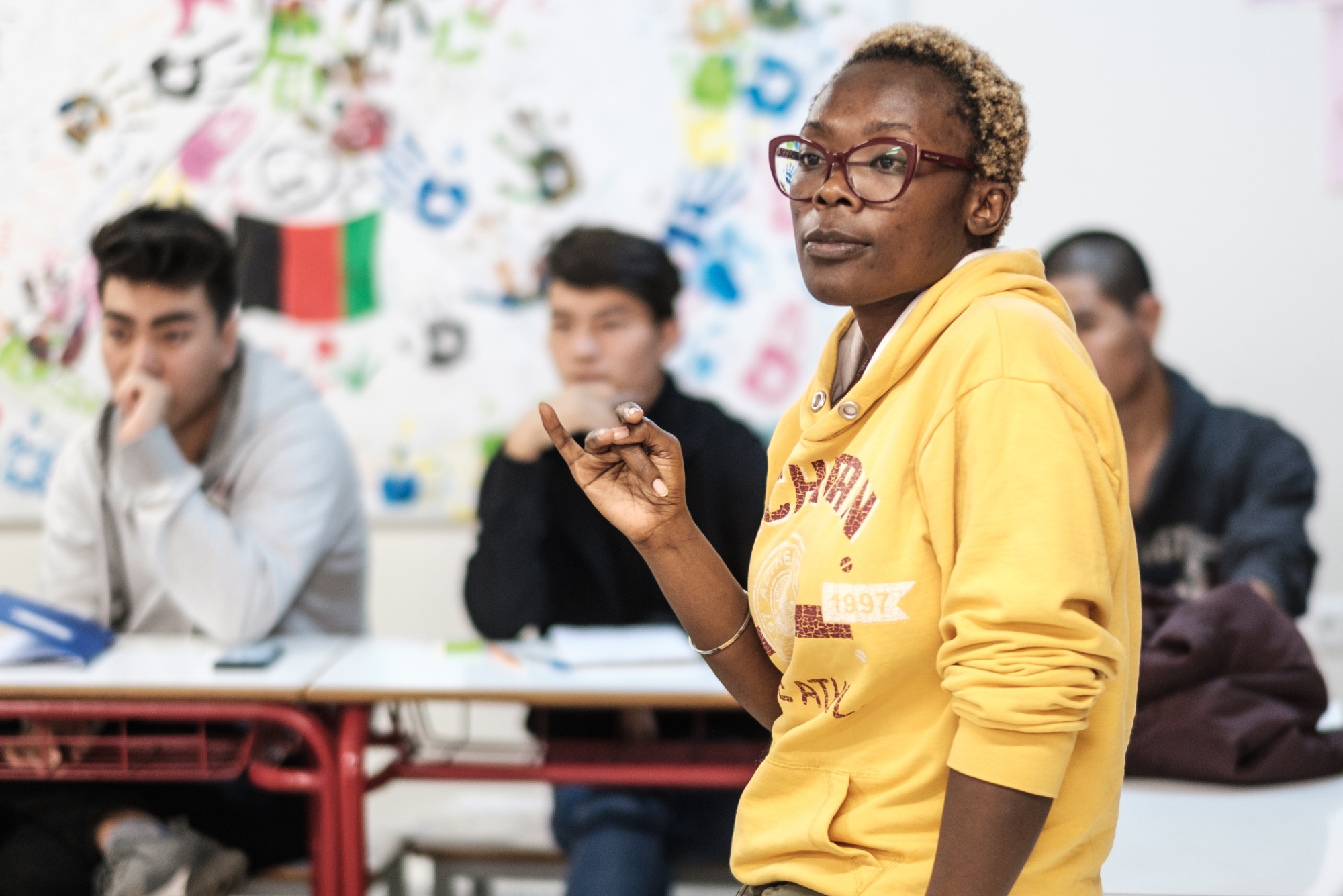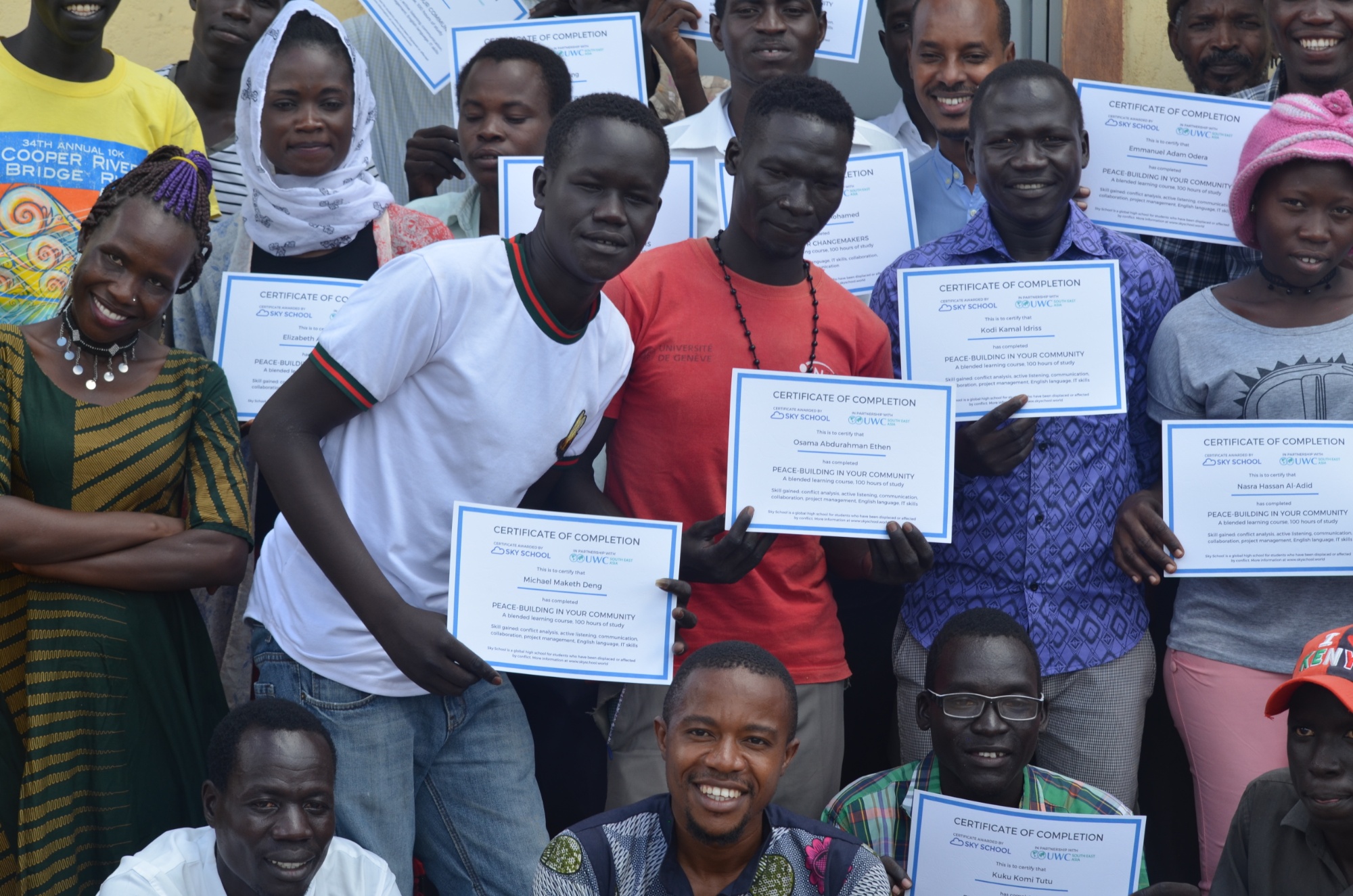Filling the Urgent Gap in Opportunities For Refugee Youth in 2020: An interview with UWCx Initiative, Amala

Amala - inspired by the Arabic word for “hope” - was founded back in 2017 (then called Sky School) by UWC alumnae and former UWC International staff members Polly Akhurst (UWC Atlantic, 2004-2006) and Mia Eskelund Pedersen (UWC Mahindra College, 2005-2007) in response to the severe shortfall in secondary education opportunities they found to be available for young refugees. In the years since Amala’s conception, they have educated more than 400 refugee youth through their programmes.
This year, Amala also launched the first international secondary education programme specifically designed for refugee youth and host communities. The programme was developed with the support of UWC South East Asia as a founding education partner, and with the support of over 150 educators and refugee learners, many from within the UWC movement.
Polly and Mia agree that the core beliefs behind all Amala programmes are closely tied to the values of the changemaker education they both received while at UWC:
“We want to provide an education that our learners will feel is relevant, engaging and meaningful - to improve their own lives and those of their communities. Even with those education opportunities that do exist for young refugees, it is too often the case that the curricula does not relate to the international and complex lives that they lead.”
The need for the kind of learning programmes that Amala provides has only been accentuated in the past year. As Polly and Mia explain, “the pandemic has really laid bare the inequalities within education and the loss of learning is huge: where we currently work in Kakuma Refugee Camp, Kenyan schools have just reopened for the first time since March. While there has been an attempt to shift learning online, many refugees, especially in camp settings, have huge challenges in accessing reliable connectivity and devices. At the same time, schools also function as support structures for disadvantaged students. Many young refugees live complex lives, worsened by the reality that many have been forced into work as their parents face job losses caused by the pandemic. These students need to be supported in order to reduce the chance of dropping out.
At Amala, we’ve been trying our very best to
Throughout all of these challenges, it’s the stories of their learners that keep Polly, Mia and the rest of the Amala team going:
“Our learners have shown us from the very beginning how deeply impactful transformational learning can be. Even just a 10 week short programme can change lives. Take Mofti from Kakuma camp Kenya, for example, who took our course on peacebuilding and social entrepreneurship and then went on to set up his own Kiosk in the camp - telling us that he would never have had that idea, had he not done the course. Or there’s Zamzam from the same camp who set up a conflict resolution group for women - reporting that the Amala course gave her the confidence to put her idea into practice.”

So, what’s next for Amala?
"In the current climate a lot of it comes back to resilience: how can we be resilient during these times, how can we maintain our mission and continue to use transformative education to create opportunities and inspire positive change in the lives of refugees and their communities? How can we reach out to more like-minded organisations to work together on creating shared problems to the shared solutions that we face? Within this context, we are very excited to partner with UWC and with Rise [a Schmidt Futures and Rhodes Trust initiative] to launch a new foundational programme for a total of 60 refugee students from 2021 to 2023 at Kakuma camp.
It is partnerships like this that are helping us expand our reach, further diminish the number of young people from refugee backgrounds deprived of a secondary education and, most importantly, instil hope in a generation of young people who will bring about positive change in their communities.”

